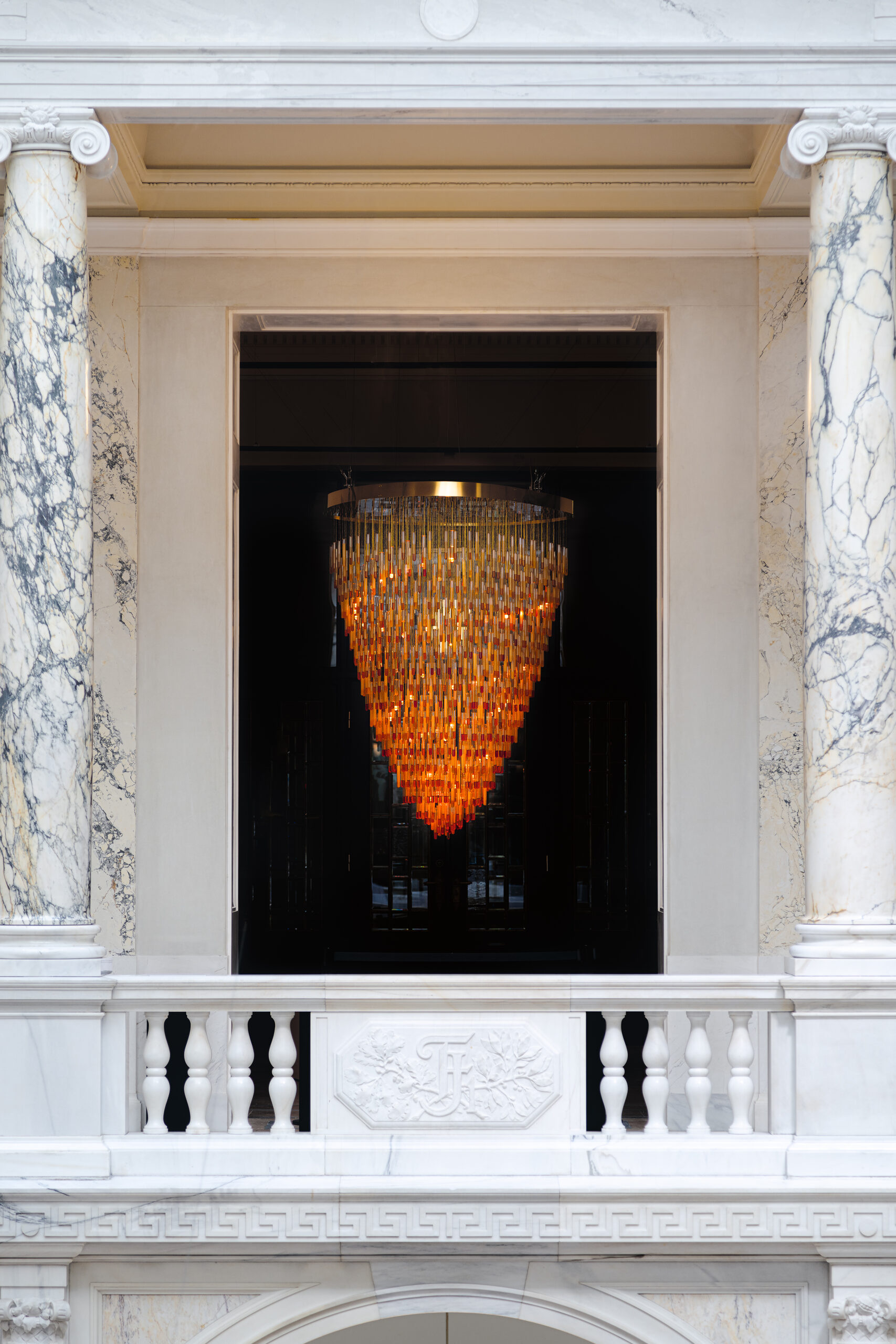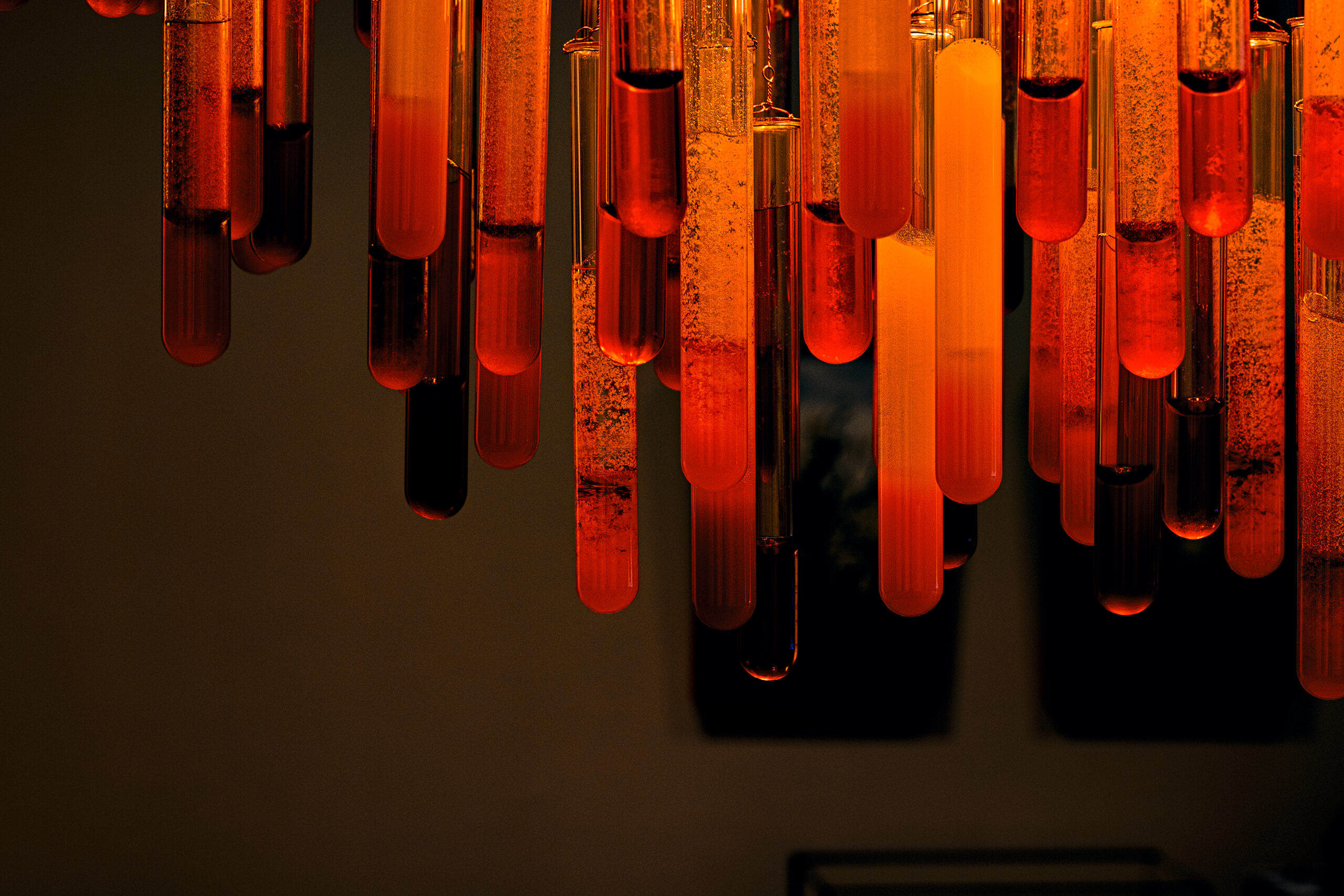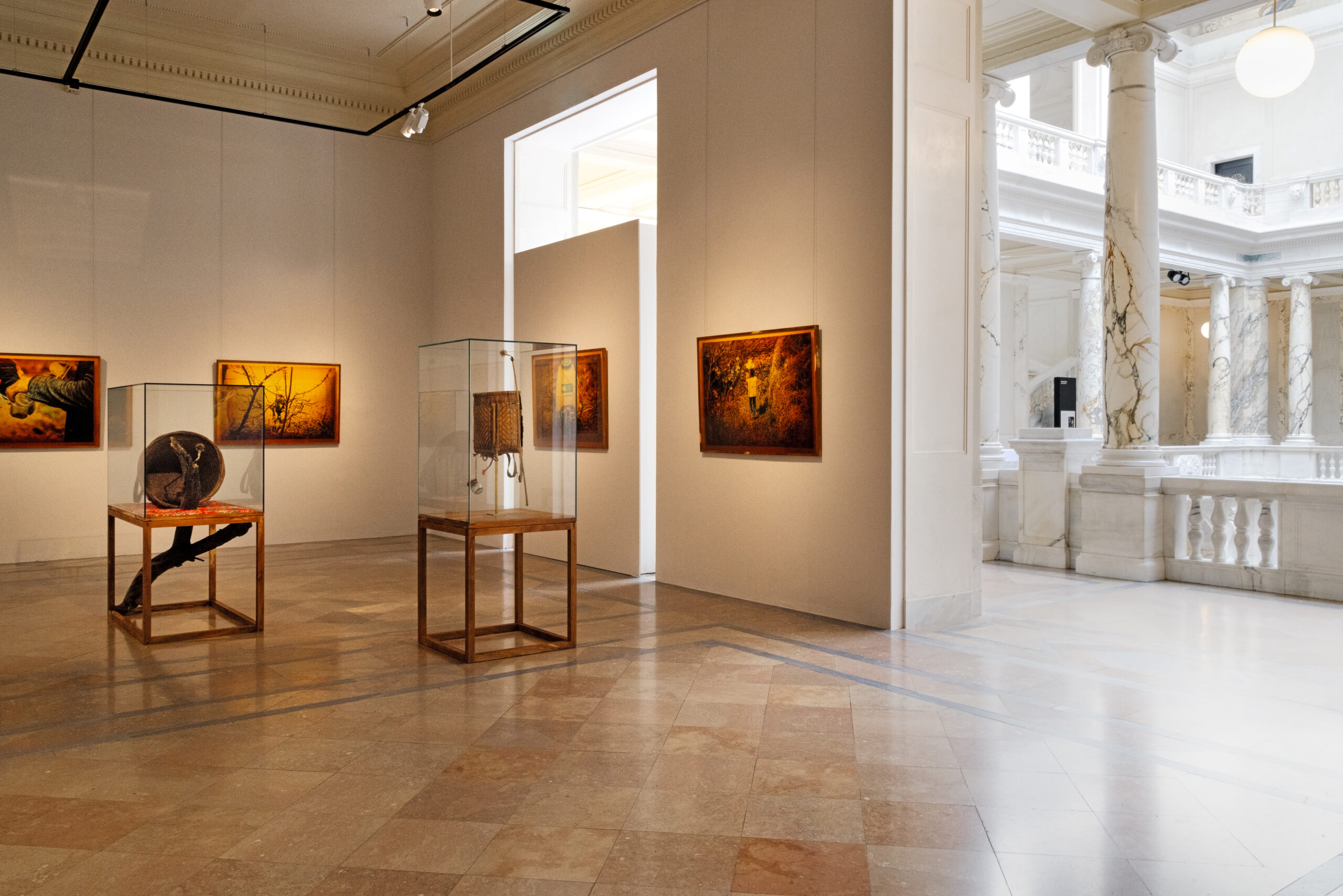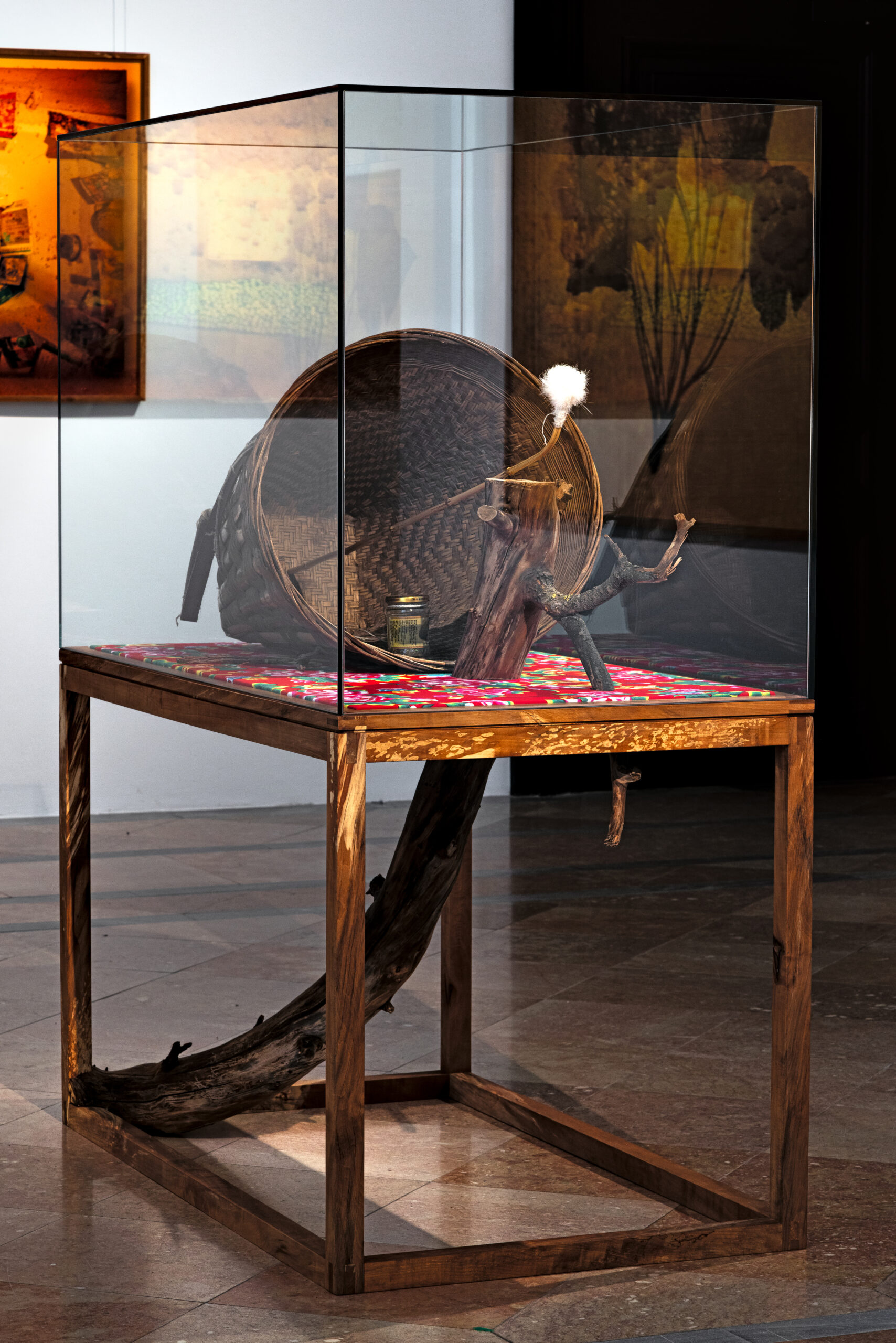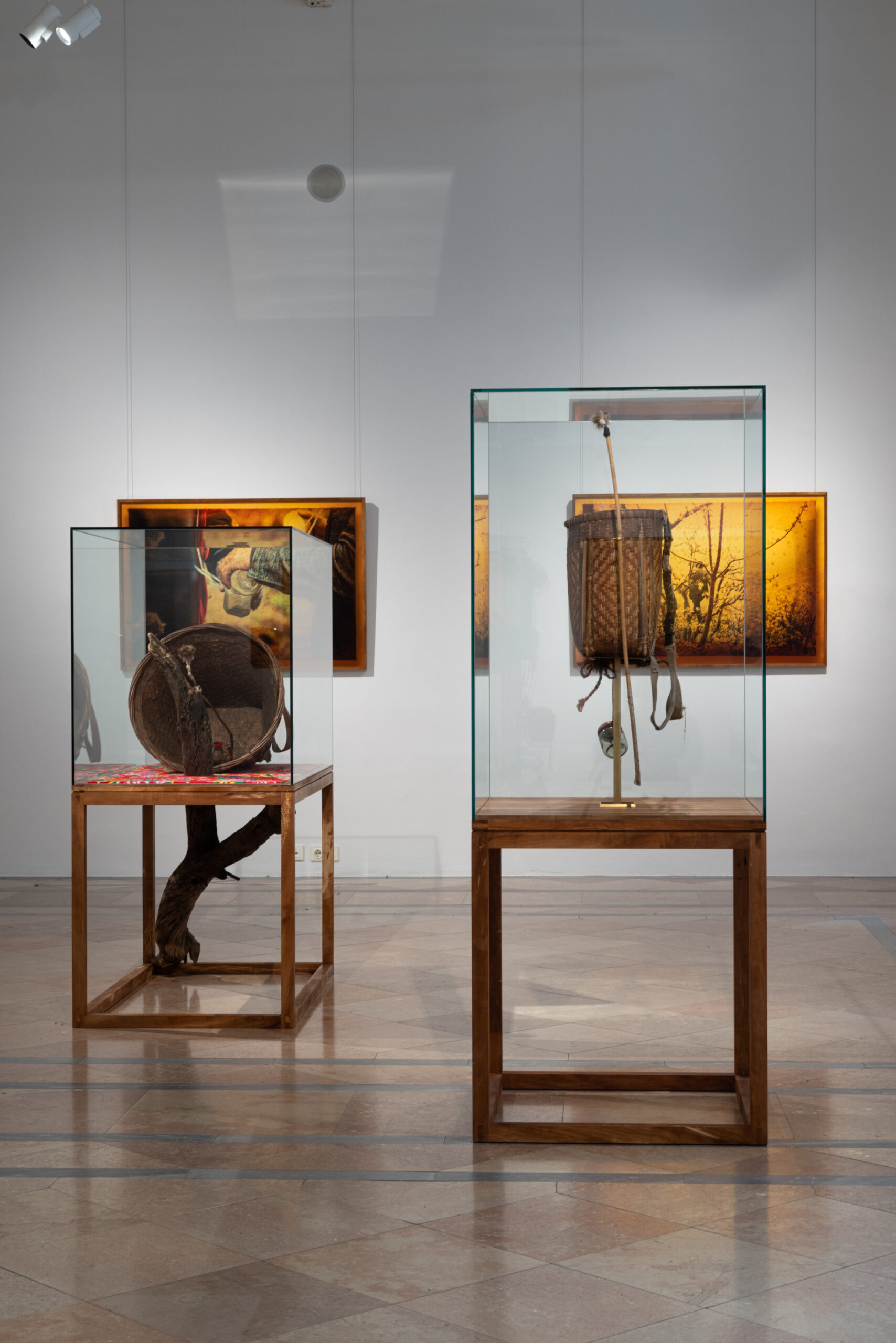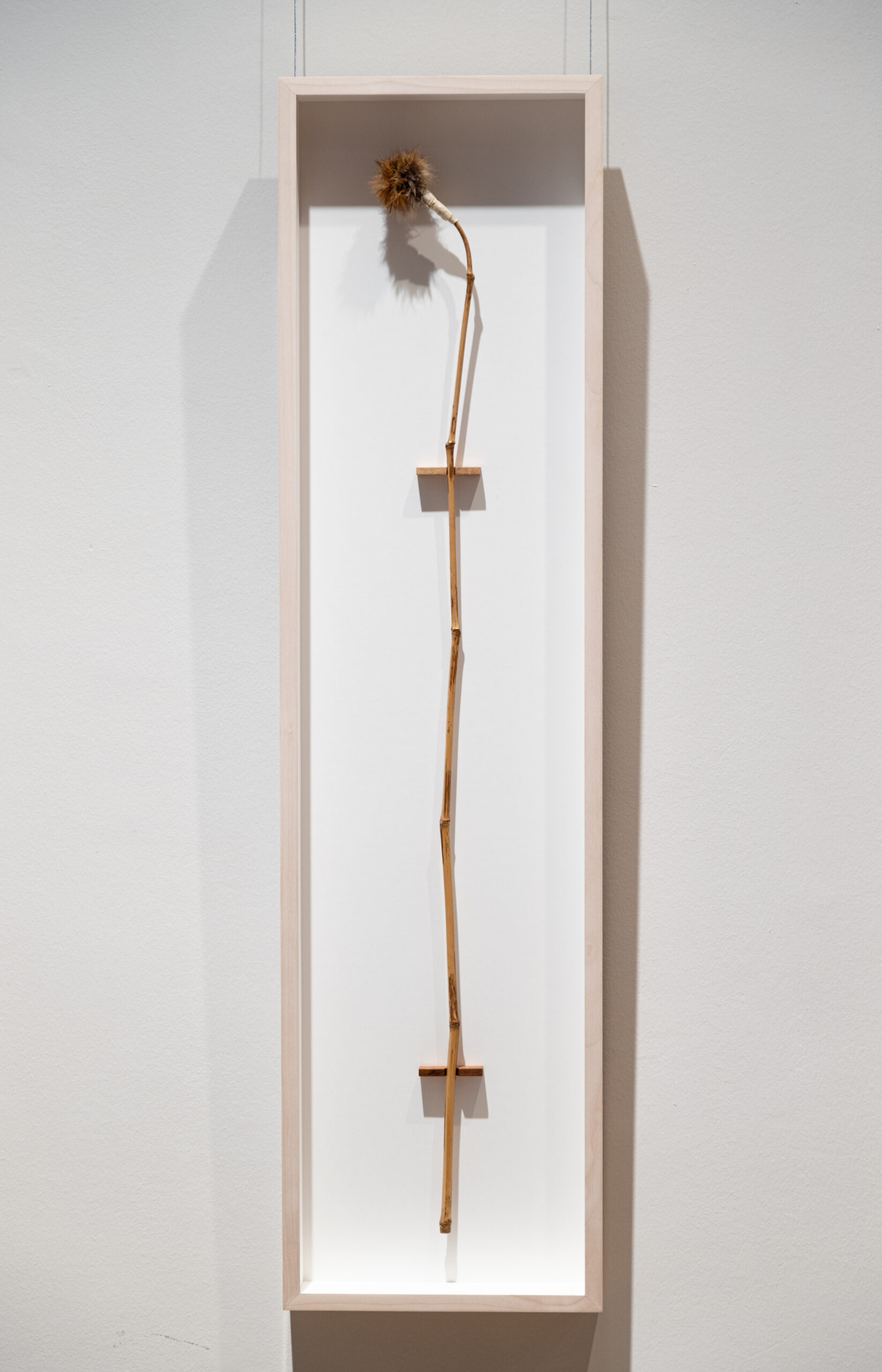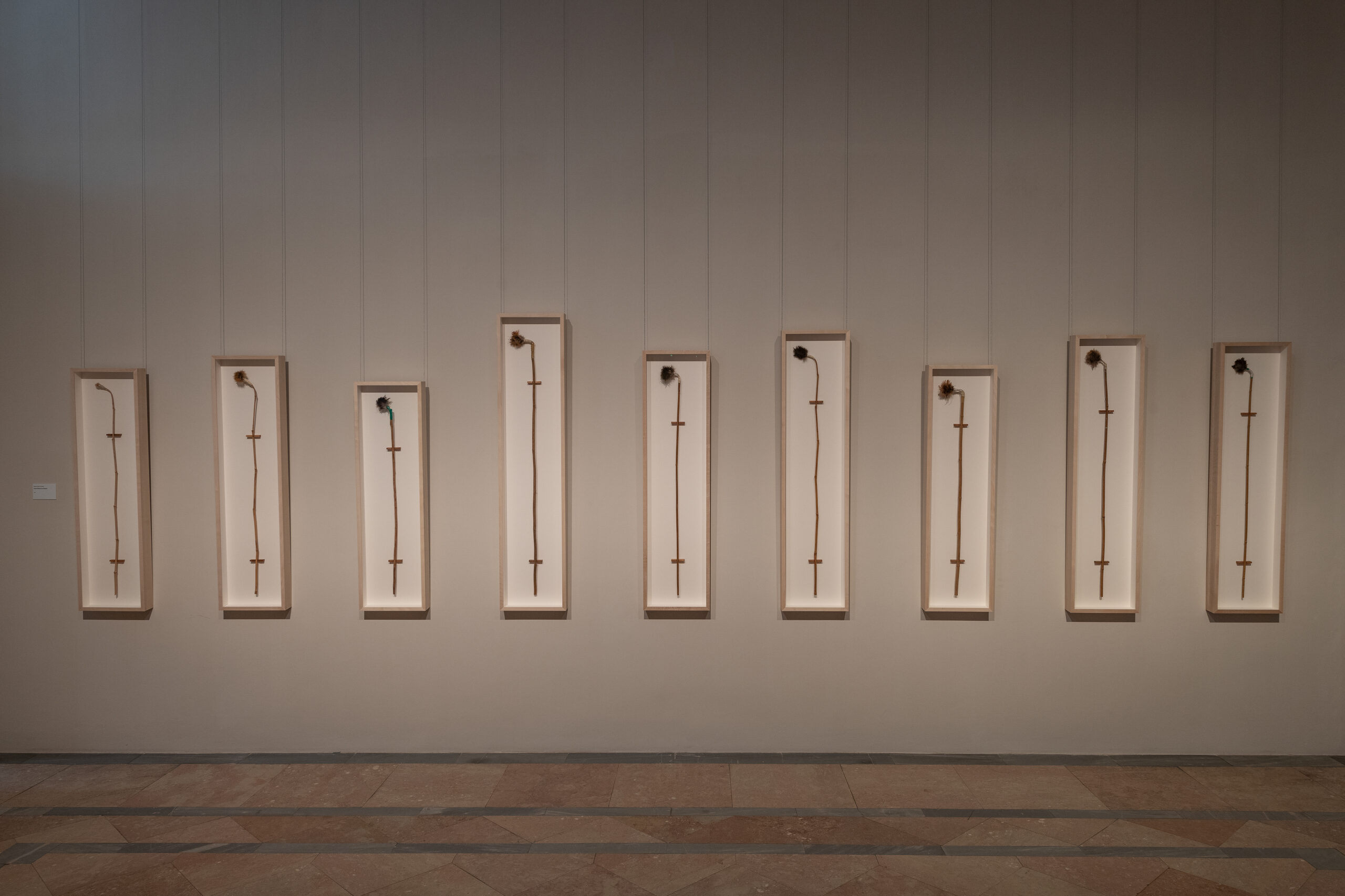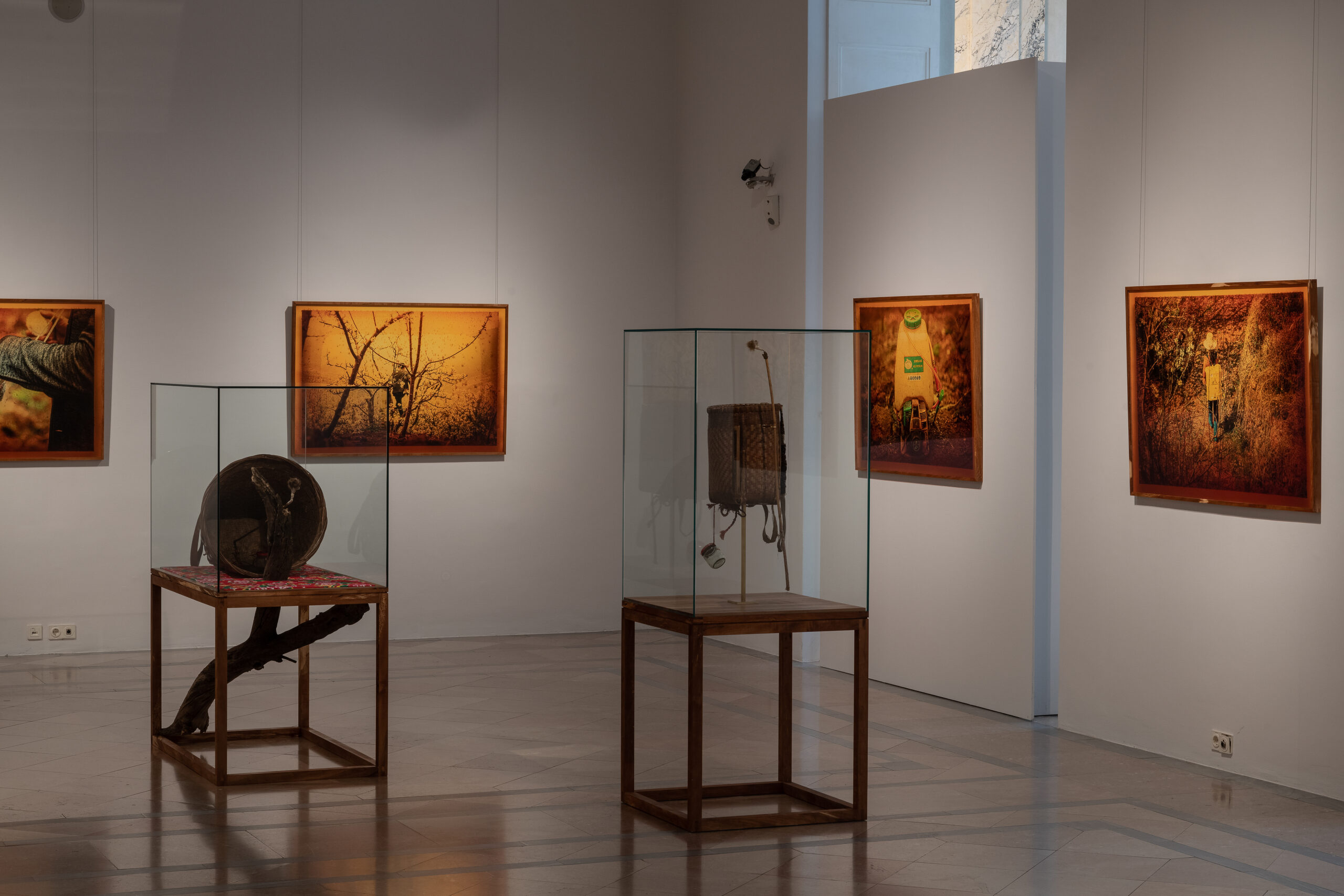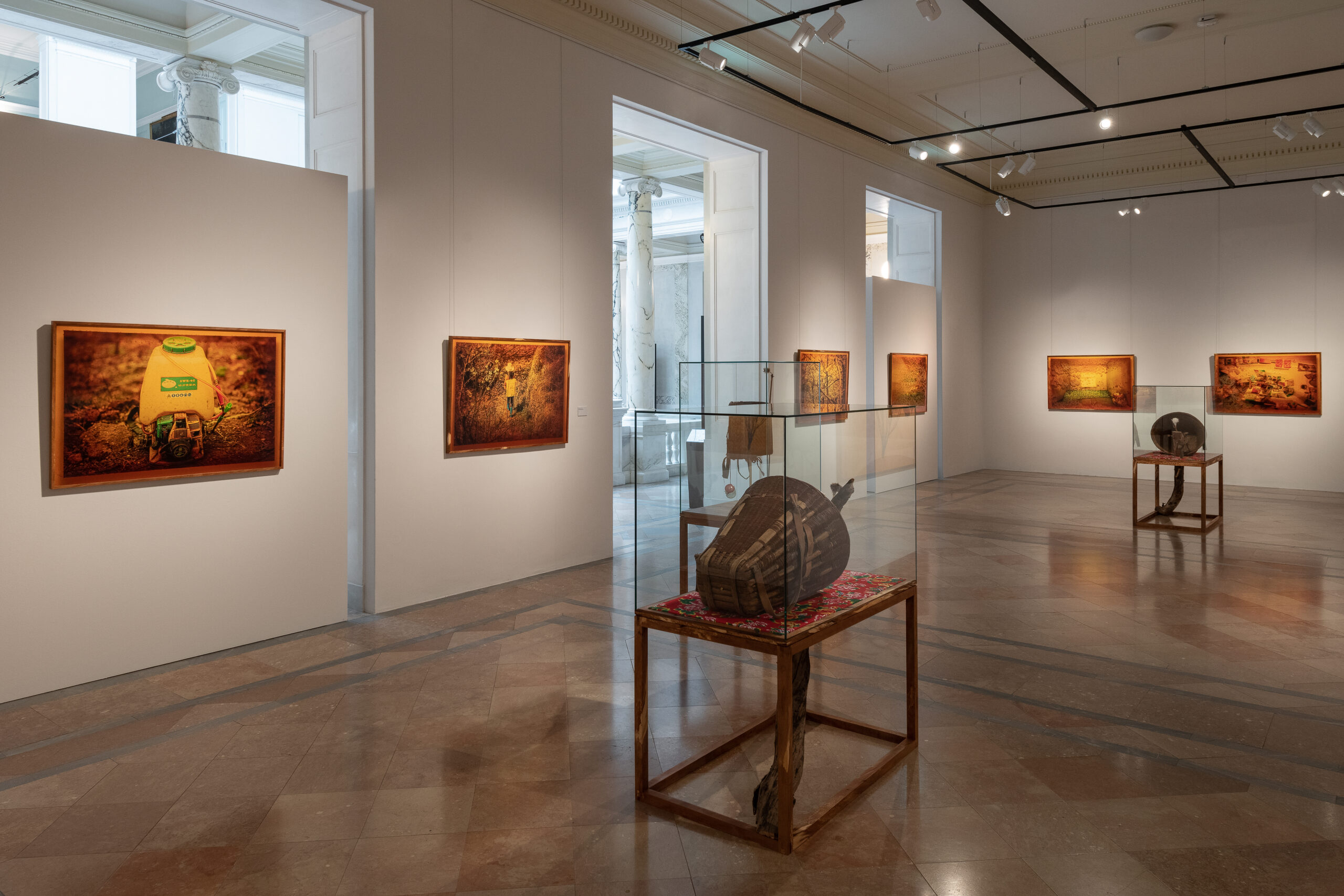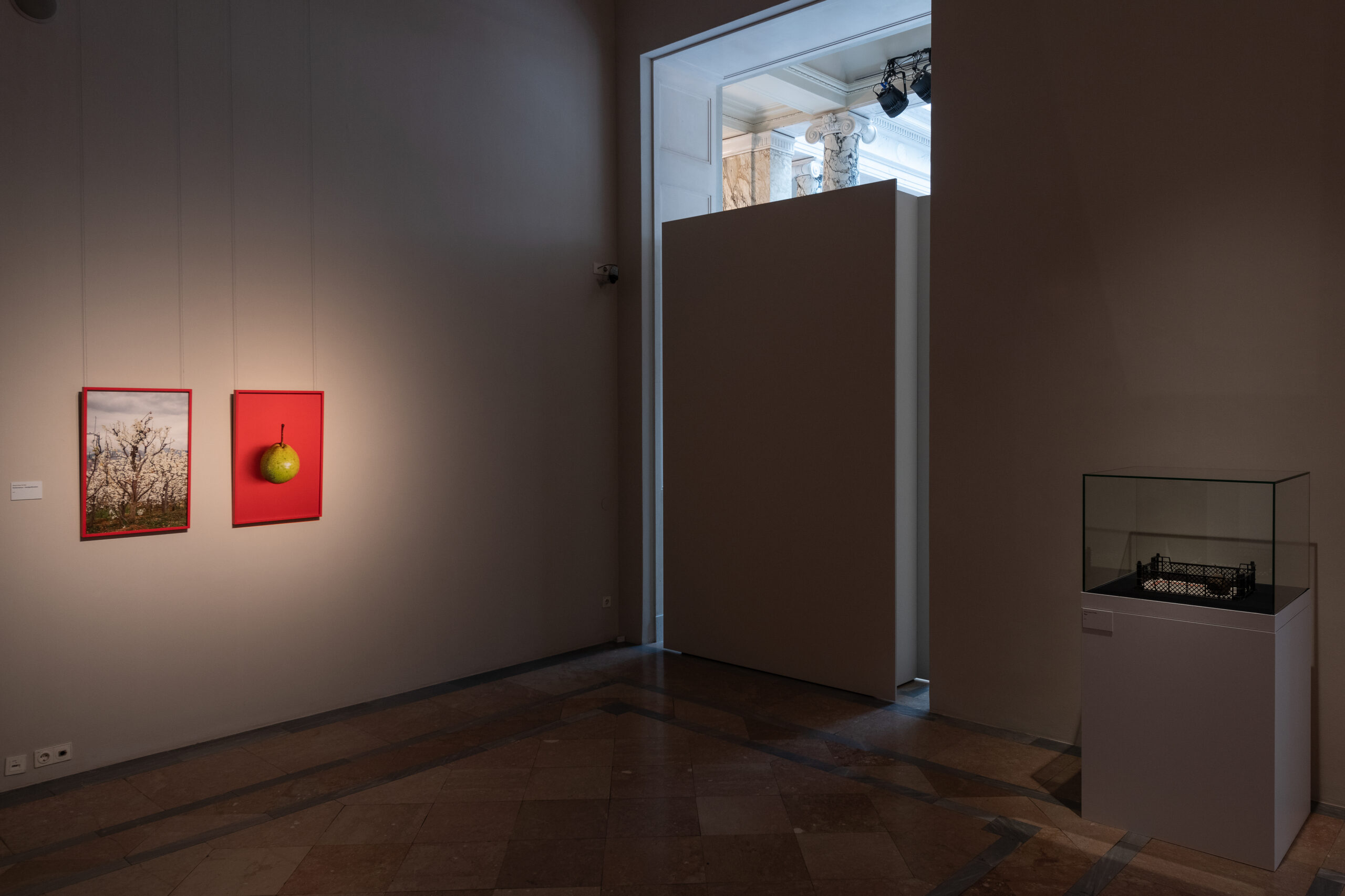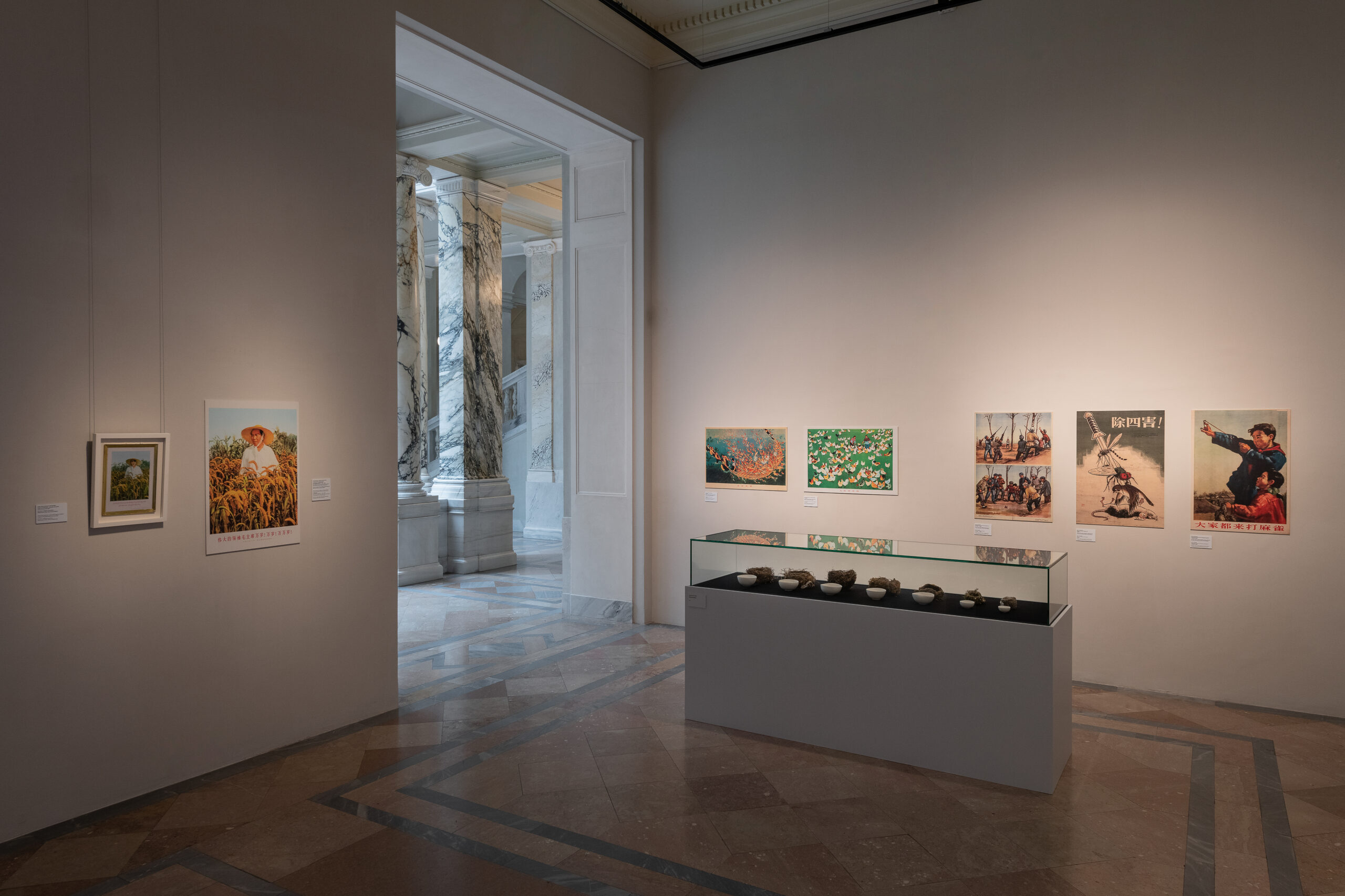Fruits of Labour
Photo Credits:
Khm Museumsverband – 2023 & Studio Maximilian Prüfer – 2023
With Fruits of Labour, the Weltmuseum Wien presents the German conceptual artist Maximilian Prüfer (born 1986), whose works deal with human interventions in nature in the age of the Anthropocene and point to their global consequences.
For Prüfer, nature is not a romanticised place, but a highly particular and complex set of rules that has fascinated him since childhood. Starting with the extinction of insects in Europe and the threat this poses to biodiversity, Prüfer addresses numerous ecological issues in his work, including those that occurred as a result of political developments in China in the 1950s and 1960s. Fruits of Labour shows the dimension of human effort needed to compensate for the loss of biodiversity. It fundamentally questions the relationship between humans and nature.
Prüfer’s works – installation, photography, film – are set in relation to objects from the collections of the Weltmuseum Wien and are complemented by loans from the Naturhistorisches Museum Wien.
Prüfer was inspired for his series of works presented at the Weltmuseum Wien by a trip to Sichuan province. There he found a valley without insects and birds where people pollinate the fruit trees by hand. A political campaign initiated by Mao Zedong (1893-1976) in 1958 to eradicate the four plagues (rats, flies, mosquitoes and sparrows) during the „Great Leap Forward“ led, among other things, to a massive ecological imbalance of nature. As a result millions of people died of starvation. The effects can still be felt today. In regions of Sichuan province, the unnatural silence remains audible.
Maximilian Prüfer’s photographic works Performance – Hand Pollination and From Flower to Flower testify to the human ingenuity of taking over the task of pollinating insects such as bees and wild bees and performing hand pollination on fruit trees.
In his staging of a single fruit – the pear – Prüfer refers to another of Mao’s political campaigns of 1968 – the heroisation of the mango. Mao received mangoes, exotic fruits, as a gift from Pakistan’s foreign minister. Mao gave them to the workers‘ and peasants‘ propaganda troops who had supported him. From then on, mangoes symbolised Mao’s care and kindness and were reproduced many times in different materials.
The disappearance of pollinating insect species and the decline in biodiversity must also chasten us in Europe and Austria. The wild bee specimens on display from the collection of the Naturhistorisches Museum Wien are evidence of species of wild bees that are already extinct in Austria.
We humans are responsible for landscape destruction, excessive cultivation, monocultures, the use of chemical plant protection agents, and climate change. The exhibition is meant to inspire us and make us think about how to deal carefully with the fragile ecosystem in which we live.
The exhibition was curated by Maximilian Prüfer and Bettina Zorn, curator of the collections from East Asia(China, Korea, Japan). Gerhard Veigel designed the show.
